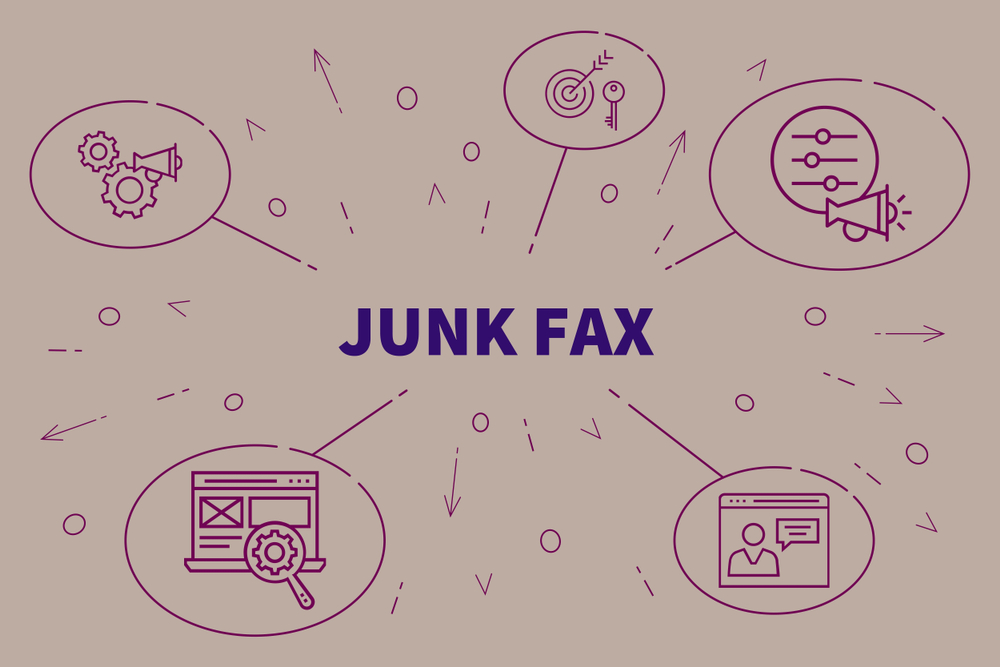Small and Medium-Sized Business
Law Firm Compliance: Navigating Common Issues and Best Practices
Compare All PlansStart Faxing Now
Law firm compliance is crucial to maintain client trust and adhere to legal standards. This article discusses the importance of compliance in law firms, common challenges faced and best practices to navigate these issues. You’ll learn about key compliance standards, the role of digital communication solutions and the benefits of online fax in maintaining secure communications.
The Importance of Law Firm Compliance
Compliance for law firms includes adherence to laws, regulations and ethical standards that govern your legal practice.
Maintaining compliance is critical for a few reasons:
- It helps you build and maintain client trust.
- Non-compliance can lead to severe consequences.
- It’s not just about avoiding penalties, but establishing credit.
When clients know their sensitive information is handled in accordance with legal standards, they’re more likely to remain loyal to the firm.
Without law firm regulatory compliance, you may face financial penalties that can significantly impact your operations. Plus, reputational damage can occur when you fail to meet compliance standards. This can lead to a loss of clients and business opportunities. In severe cases, you risk disbarment if you don’t follow legal and ethical guidelines.
With compliance, you establish a culture of integrity within your firm. When compliance becomes part of a firm’s identity, it fosters a sense of accountability among staff. This culture can enhance your overall reputation and contribute to long-term success.
Key Compliance Standards for Law Firms
Law firms must adhere to various compliance standards that govern their operations and practices. Understanding these standards is vital for law firms to navigate the complex regulatory landscape. Compliance with these standards helps ensure that firms protect client information, uphold ethical responsibilities and maintain operational integrity.
Some common compliance standards in the legal industry are:
- Data protection laws
- Legal ethics rules
- Anti-money laundering (AML) regulations
- Client confidentiality standards
- Continuing legal education (CLE) requirements
As a lawyer, your responsibilities are vast. Data protection laws like the General Data Protection Regulation (GDPR) in Europe and those like the Health Insurance Portability and Accountability Act (HIPAA) in the U.S. protect certain client information. And, legal ethics rules, set by state bar associations, dictate how lawyers should conduct themselves professionally.
AML regulations require firms to monitor transactions and report suspicious activities to prevent money laundering. Plus, you’re obligated to protect your clients’ confidential information and follow guidelines set forth by professional conduct rules and participate in ongoing education to stay updated on the law and maintain your licenses.
Failure to comply can lead to serious legal repercussions and damage the firm’s credibility. To explore the challenges associated with managing critical documents, learn about digital documents, compliance and the cloud.
5 Major Compliance Hurdles Law Firms Need to Address
Maintaining law firm regulation compliance can be challenging, with various hurdles that need to be overcome. The challenges stem from the unique nature of legal practice and the ever-evolving regulatory environment. Addressing these hurdles is critical for you and your firm to maintain compliance and avoid potential legal pitfalls.
To find out how to improve your compliance, explore the benefits of online fax services for law firms.
1. Data Security
As cyber threats grow, securing client data should be your top priority. To prevent data breaches, you need to implement strong security measures like encryption, firewalls and regular security audits. Protecting your client’s sensitive information is essential to maintain trust and compliance.
2. Ethical Dilemmas
Ethical challenges, like conflicts of interest, can complicate your compliance efforts. It’s important to have clear policies in place to navigate these dilemmas. By addressing potential conflicts head-on, you can maintain legal ethics and avoid compromising your firm’s integrity.
3. Regulatory Changes
Laws and regulations are constantly evolving, and it’s essential to stay updated on any changes that may affect your firm. Regular training and policy updates are key to ensuring ongoing compliance. Staying informed will help you adapt quickly and avoid legal pitfalls.
4. Resource Limitations
If you’re in a smaller firm, resource limitations may present a significant obstacle in maintaining compliance. With limited personnel and budget, finding cost-effective solutions becomes essential. Prioritize necessary compliance measures and look for affordable, efficient tools to help you stay on track.
5. Training and Awareness
Making sure your entire team understands compliance is critical. Regular training sessions are necessary to reduce risks and reinforce a compliance-driven culture. Though it takes time and resources, investing in continuous education will strengthen your firm’s overall compliance efforts.
Effective Strategies for Tackling Law Firm Compliance Issues
To successfully navigate compliance challenges, you must adopt effective strategies. Actionable tactics help you create a structured approach to compliance that minimizes risks and assures adherence to regulations.
By implementing these best practices, you can strengthen your law firm compliance programs and build a culture of accountability.
Develop a Compliance Program
Create a formal compliance program that includes detailed policies, procedures and training sessions for your team. Your program should outline all of your law firm compliance requirements and be easily accessible to everyone in the firm.
A well-structured compliance program helps keep staff informed and makes sure that they know how to handle various common challenges. Regular updates to the program will help maintain its relevance as regulations evolve.
Stay Updated on Regulations
As a proactive way to stay ahead of regulatory changes, appoint a compliance officer or team. This team should be responsible for monitoring legal and regulatory updates, making sure the firm adapts to any new requirements promptly.
By staying informed, your firm can avoid compliance issues and potential penalties before they arise. Regular communication between the compliance team and other departments will help make sure that your team stays on track.
Implement Security Protocols
Invest in secure communication tools like eFax. This is a key step in protecting client data. Implementing encryption, firewalls and other security measures helps safeguard sensitive information.
Additionally, regular reviews and updates to your firm’s security protocols are necessary to adapt to new cyber threats. A proactive approach to data security makes sure your firm maintains confidentiality and meets legal requirements.
Conduct Regular Audits
Regular compliance audits are key to evaluating the effectiveness of your practices and policies. Audits help you identify any areas where your measures may be lacking or need improvement.
By performing audits, you ensure that your firm stays aligned with current regulations and that any shortfalls are addressed before they become more significant issues. Regular reviews also demonstrate to clients and governing agencies that you’re committed to maintaining high standards.
Foster a Culture of Compliance
Promote a strong culture of compliance by making it a core value of your firm. Encourage all employees, from junior staff to senior attorneys, to prioritize adherence to regulations in their daily work.
Recognize and reward employees for their compliance efforts to help reinforce the importance of following protocols. An environment where compliance is seen as a shared responsibility makes it an integral part of your firm’s operations.
The Crucial Role of Digital Communication Solutions in Modern Law Firms
The rise of digital communication solutions has transformed how law firms operate. By leveraging secure cloud technologies for regulated industries, you can improve compliance efforts while you refine your overall efficiency.
Here are key reasons why secure solutions are essential:
- Enhanced security
- Improved accessibility
- Cost efficiency
- Streamlined processes
- Easier compliance
Digital solutions often provide better security features than traditional methods and reduce the risk of data breaches. Plus, cloud-based systems allow lawyers to access documents and communicate with clients anytime, anywhere. This makes it easier to manage cases on the go.
Moreover, electronic communication can reduce the costs associated with paper, printing and storage, allowing you to allocate resources more effectively—These solutions help automate tasks, which improves efficiency and productivity, leading to better client service.
Many digital solutions offer features that help maintain compliance, like secure data transfer and storage. These features can simplify the compliance process.
For more details, examine online fax solutions for the legal industry.
eFax Protect: An Online Solution for Compliant Legal Communications
eFax Protect is an ideal solution for law firms that want to maintain compliance and secure communication. As a modern alternative to traditional faxing, eFax Protect provides numerous benefits that align with the unique needs of the legal industry.
Here are some benefits of eFax Protect in the legal industry:
- eFax Protect helps you make sure sensitive information is transmitted securely, which reduces the risk of data breaches and unauthorized access.
- Our software includes features that automatically archive sent and received faxes, which aids in compliance with record-keeping regulations.
- Many eFax services integrate with common legal practice management tools to streamline workflows and improve efficiency.
- Online fax eliminates the need for dedicated fax machines and supplies, which reduces overhead costs and enables you to invest your resources in other areas of your business.
- The eFax platform is easy to use and enables lawyers and staff to send and receive faxes with minimal training and effort.
These benefits make eFax an ideal solution for law firms that prioritize compliance and secure communication. Start faxing online today!
FAQs Around Law Compliance
To maintain legal compliance, law firms must follow ethical standards, data protection regulations and AML laws. They must also ensure client confidentiality by adhering to legal rules that govern attorney-client privilege.
Law firms must comply with several key regulations, including data protection laws like GDPR, legal ethics rules and AML regulations. Additionally, CLE requirements and other jurisdiction-specific regulations must be adhered to.
Small law firms can manage compliance by prioritizing key areas and developing a streamlined compliance program. Leveraging technology, like secure communication tools and compliance tracking software, can help reduce costs.
Law firms should review and update their compliance policies at least once a year or when there are significant changes in regulations. This helps ensure that the firm’s practices stay aligned with new laws and industry standards.
Data protection regulations, like GDPR, require law firms to implement strict protocols to safeguard client data. This includes using secure communication channels, encryption and proper data storage. These regulations shape overall compliance strategies to make sure legal and ethical standards are met.















